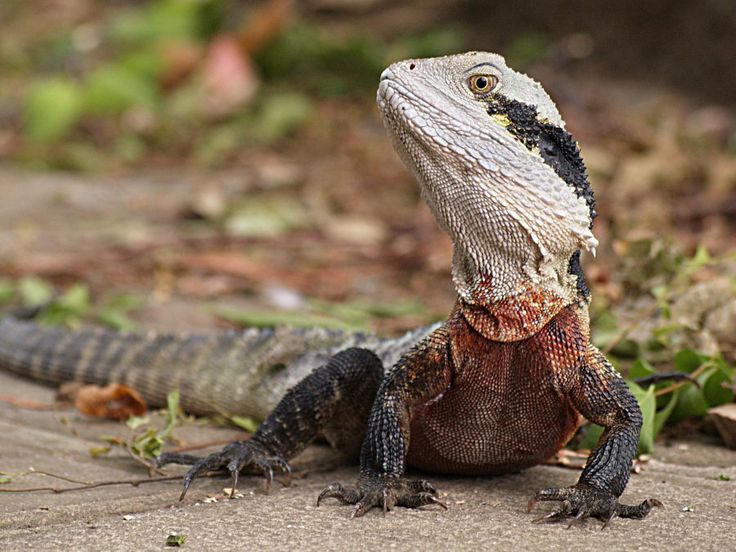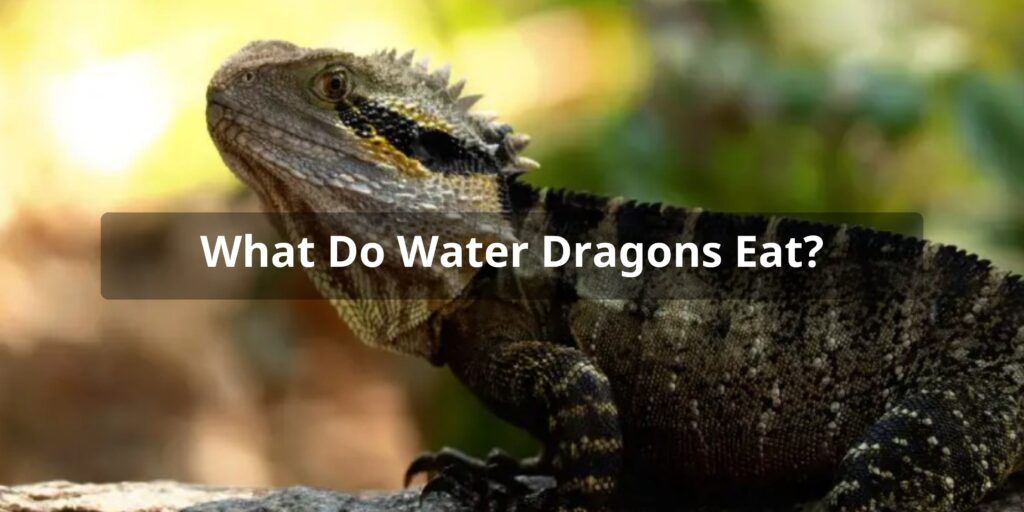Water dragons are fascinating reptiles that require a balanced diet to stay healthy and thrive. In the wild, they feed on a wide variety of foods, including insects, small mammals, plants, and fruits. As a pet owner, it is your responsibility to ensure that you provide your water dragon with a well-rounded and nutritious diet. In this article, we will explore the essential foods for a water dragon’s diet, feeding guidelines, hydration needs, and more.
Water Dragon Diet Basics
A water dragon’s diet should consist of approximately 70% insects and 30% plant matter. Younger water dragons require more protein, so their diet should be higher in insects than adult water dragons. As they mature, their diet should gradually shift towards more plant-based foods. Here are some guidelines for feeding your water dragon:
- Juvenile water dragons (up to 8 months old) should be fed twice daily.
- Sub-adult water dragons (8-18 months old) should be fed once a day.
- Adult water dragons (18 months and older) can be fed every other day.
It is important not to overfeed your water dragon as obesity can lead to health problems.
Essential Foods for Water Dragon Diet
Preferred Live Food Options
Water dragons are primarily insectivorous and require a variety of live food options. Here are some preferred live food options suitable for water dragons:
- Crickets
- Dubia roaches
- Mealworms
- Waxworms
- Grasshoppers
- Superworms
It is important to gut-load these insects before feeding them to your water dragon. Gut-loading involves feeding the insects nutrient-rich food to enhance their nutritional value. You can also dust the insects with calcium powder before feeding them to your water dragon.
Safe Vegetables for Regular Intake
In addition to live food, water dragons need a variety of vegetables in their diet. Here are some safe vegetable options for regular consumption:
- Collard greens
- Kale
- Swiss chard
- Mustard greens
- Dandelion greens
- Squash
- Carrots
- Sweet potato
- Bell peppers
Avoid feeding your water dragon iceberg lettuce or spinach as they can cause health problems.
Recommended Fruits for Water Dragon Diet
Water dragons enjoy fruit, but it should only make up a small portion of their diet. Here are some recommended fruits for water dragons:
- Apples (without seeds)
- Berries (strawberries, raspberries, blueberries)
- Mango
- Papaya
- Pear
- Peach
Fruit should only be given once or twice a week in small amounts.
Essential Vitamins & Minerals
Water dragons require certain vitamins and minerals to maintain good health. Here are some essential nutrients that should be included in their diet:
- Calcium: Needed for bone and shell development. You can dust their food with calcium powder or offer cuttlebone.
- Vitamin D3: Helps absorb calcium. Expose your water dragon to UVB lighting as this helps them produce vitamin D3 naturally.
- Vitamin A: Necessary for vision and growth. Provide them with vegetables high in vitamin A.
- Protein: Important for growth and muscle development. Offer them live food like crickets and mealworms.
Foods to Avoid for Water Dragon
There are certain foods that water dragons should avoid as they can be harmful to their health. Here are some examples:
- Fireflies: They contain toxins that can be fatal to water dragons.
- Avocado: Contains persin, which is toxic to reptiles.
- Rhubarb: Contains oxalates, which can interfere with calcium absorption.
- Spinach and iceberg lettuce: Contains goitrogens, which can interfere with thyroid function.
Feeding Guidelines for Water Dragon Owners

Here are some practical guidelines, tips, and rules for feeding your water dragon:
- Feed your water dragon in the morning or early afternoon.
- Offer live food first, followed by vegetables and fruit.
- Remove uneaten food after 30 minutes to avoid contamination.
- Change their water daily and provide a shallow dish for soaking.
- Avoid overfeeding as this can lead to obesity.
Understanding Water Dragon Hydration Needs
Water dragons require access to clean, fresh water at all times. They also need a humidity level of around 60% to stay healthy. You can maintain humidity levels by misting their enclosure regularly or providing a large water source like a pool or pond. Additionally, water dragons enjoy soaking in shallow water, so make sure to provide a shallow dish for them to soak in.
Conclusion
In summary, a water dragon’s diet should consist of primarily insects and a variety of vegetables and fruits. It is important to gut-load insects, dust them with calcium powder, and offer cuttlebone to ensure they receive essential nutrients. Avoid feeding them toxic foods like firefliesand avocado, and provide them with a shallow dish of clean water for soaking. Feeding guidelines should be followed to avoid overfeeding or contamination of uneaten food.
Understanding a water dragon’s hydration needs is also crucial to their health and well-being. Maintaining a humidity level of around 60% can be achieved by misting their enclosure regularly or providing a large water source like a pool or pond. Water dragons enjoy soaking in shallow water, so make sure to provide them with a shallow dish for soaking.
By following these guidelines, you can ensure that your water dragon receives a balanced and nutritious diet that will help them thrive. Always consult with a reptile veterinarian if you have any concerns or questions about your pet’s diet or behavior.
FAQs About Water Dragon Diet
Can water dragons be fed a diet primarily consisting of insects?
Answer: While insects are essential, a diet solely based on insects lacks the required nutrients for water dragons. A balanced diet includes insects, vegetables, and fruits. Providing a diverse range of foods replicates their natural diet and supports optimal health.
How often should I feed my water dragon, and what is the suggested feeding schedule?
Answer: Young water dragons should be fed daily, while adults can be fed every 2-3 days. Adjust feeding frequency based on their age, size, and health. Offering a variety of appropriately sized insects, along with vegetables and fruits, ensures their nutritional needs are met.
What types of vegetables and fruits are suitable for a water dragon’s diet?
Answer: Water dragons can consume leafy greens like collard greens, kale, and bok choy, as well as fruits such as berries, melons, and mangoes. A variety of nutrient-rich options ensures their dietary requirements are met.
Is it necessary to provide calcium and vitamin supplements for water dragons?
Answer: Yes, water dragons benefit from calcium and vitamin supplements. Dusting insects and vegetables with calcium powder prevents metabolic bone disease. Vitamin supplements are also crucial for overall health. Consult a veterinarian for guidance on proper supplementation.
What happens if a water dragon’s diet lacks variety?
Answer: A diet lacking variety can lead to nutritional deficiencies, health issues, and a compromised immune system in water dragons. Insufficient intake of essential nutrients affects their growth, reproductive health, and overall well-being. Offering diverse foods is essential for their optimal health.
Are there any specific insects that should be avoided in a water dragon’s diet?
Answer: Water dragons should avoid insects with hard exoskeletons, as they can be harder to digest. Insects caught from the wild may carry pesticides or parasites. Providing gut-loaded and captive-bred insects ensures better nutritional value and reduces risks.
How can I ensure my water dragon is getting enough hydration?
Answer: Providing a shallow water dish for drinking and soaking ensures water dragons’ hydration. Regular misting of their enclosure maintains humidity levels and offers drinking opportunities. Monitoring humidity and the condition of the water source supports their hydration needs.



